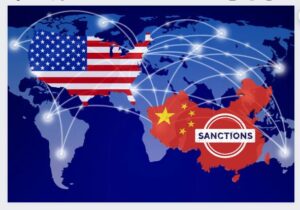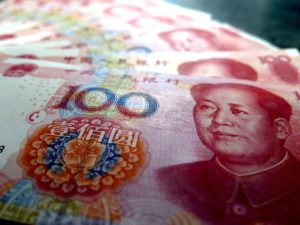Muddy Waters is a hedge fund company that targets dodgy US-listed Chinese companies, shorts them, and then documents the fraud in which those Chinese companies engage. Muddy Waters has an impressive list of Chinese companies it has exposed, including China Media Express, Duoyuan Water and RINO International. These companies appear to have two things in common: they did not have real businesses—or at least nothing near to the levels they claimed, and they all went public through reverse takeovers (RTOs).
Short sellers love RTOs because the fraud tends to be so blatant and so easy to uncover that it does not take long to put together a damning report. Now it turns out that Chinese companies which go through a standard IPO process—with big-four auditing firms and well known underwriters — have just as many problems as their RTO counterparts.
Three separate examples of Chinese companies that went through the IPO process should raise red flags for investors for different reasons: NetQin, VisionChina and RenRen
1. Netqin
This is probably the most obvious problem child of the group. NetQin’s business is anti-virus software for mobile phones. That this company was able to list at all is surprising, given the following in its own SEC filing:
On March 15, 2011, a live program broadcast by China Central Television Station, or CCTV, the national television broadcasting network owned by China’s central government, in celebration of China’s consumer rights protection day, reported various complaints of certain alleged fraudulent practices by Beijing Feiliu, a company in which we hold a 33% equity interest, and by us. Such alleged fraudulent practices generally included, among other things, uploading malware or viruses to imported mobile phones to promote our mobile security products.
Netqin’s SEC filing goes on to say:
Although we do not believe we have committed any wrongdoings and we do not have any reason to believe at this stage that Beijing Feiliu has engaged in any fraudulent practices, CCTV has wide coverage and perceived authority over public opinion and the negative publicity by CCTV and other media about Beijing Feiliu and us may have adversely damaged our brand, public image and reputation, which may seriously harm our ability to attract and retain users and result in a material adverse impact on our results of operations and prospects. For example, as of the date of this prospectus, each of Nokia, China Mobile and China Telecom has removed our applications from its respective official online mobile application store
One thing you have to say about Netqin is they have serious chutzpah: not only did they IPO only weeks after the damaging CCTV report, but they filed the paperwork for the IPO the day after the report aired.
Best case scenario: The accusations are false, but most of their partners are nonetheless backing out of cooperation agreements.
Worst case scenario: Netqin only protects consumers from viruses that a subsidiary creates and loads onto their cell phones.
At least investors were paying enough attention to make Netqin the worst performing IPO of the year.
2. VisionChina
VisionChina also appears to have played games that warrant a second look. According to public documents:
- VisionChina went public via a standard IPO in late 2007.
- In 2008 it bought six industry players. While the six deals together were cumulatively material to VisionChina’s business, the company deemed each individually not to be. This allowed management to skip SEC filings announcing the specifics of each of the acquisitions. It also allowed them to bury an interesting feature of all six contracts in a quarterly earnings release. VisionChina structured the deals as “earn outs,” which allowed it to immediately report all revenue from the acquisitions before actually integrating the purchased company or incurring large expenses. Of course, this is only an advantage if you need to boost short-term revenue.
- VisionChina held a follow-on offering months after the six acquisitions, while revenues were still high from the boosted income flowing from the earn out deals. According to the SEC filing, the chairman and CEO of the company (Limin Li) and two directors (Yanqing Liang and Yunli Lou) sold 3.7 million shares into the offering at $16 a share for a total of more than $60 million.
- The stock price collapsed when the financial crisis hit a month after the offering. The share price has never recovered its mojo as the earn out acquisitions were never integrated. In fact, in a March 2010 earnings call, management seemed to admit that the earn out structure had always been doomed to fail, when then-CFO Scott Chen, who was not involved in the original earn out purchases, said:
These earn outs are coming to an end. This is of course by design. I for one do not believe in the benefit of long term earn outs. I think there are better ways to manage, to incentivize sales forces and to incentivize management. So I think this is a good thing that these earn outs are coming to an end….
* * * *
earn out related revenue has been a decreasing percentage of our business over the year 2009. For the fourth quarter, earn out related revenue accounted for about 35% of our total revenue.
Analysts read this to mean 35% of VisionChina’s fourth quarter revenue would soon disappear, and following the conference call, its stock price fell 37%as it dawned on investors that none of its six earlier purchases had been integrated for long-term sustainable revenue contribution. The stock price now hovers around $4, about one quarter of the price at which management had sold so many of its shares. Lucky them.
Best case scenario: Management got extremely lucky in timing the follow-on offering and mismanaged the integration of the six acquisitions.
Worst case scenario: Management deliberately structured the six acquisitions to boost short-term revenue so they could cash in and leave investors holding the bag.
3. Renron
As you’ve no doubt heard, this company is the “Facebook of China.”
When Renren filed its F-1 with the SEC, one number in it raised more than a few eyebrows. Kai Lukoff of TechRice sums it up:
By far the most surprising finding in Renren’s F-1 filing for IPO? After two years of sluggish growth (Dec 2008-Dec 2010), Renren claims explosive active user growth over the last 3 months to the end of March 2011. It claims to have added as many active users over the past 3 months as it did the previous two years (7 million monthly active users (MAU))
Could this in fact be a surge in Renren’s popularity? Just a seasonal difference (less usage in December and more in March)? A massaging of the “approximate” numbers for the IPO?
None of my contacts in the tech industry report a surge in Renren’s popularity (if anything the opposite), but chime in if you know different.
As it turns out, Kai nailed it on the head as Renren had to change its F-1 filing a week later, as per Reuters:
According to the revised filing on April 27, the Chinese Facebook clone’s monthly unique log-in user base grew by only 5 million, or 19 percent, in the first quarter of 2011 — not the 7 million, or 29 percent, it reported in its first filing.
This did not stop Renren from having a gangbuster opening day (followed by a very weak day two).
Best Case Scenario: Renren had problems accounting for new users or it inadvertently attributed two quarters of growth to one.
Worst Case Scenario: Renren thought no one would notice its numbers were inflated.
Bottom Line: Whether you are looking for a China Joint Venture partner, involved in a China merger or acquisition, buying product from a Chinese supplier, or buying Chinese stocks, you should always do your due diligence before parting with your money.
What do you think?

























